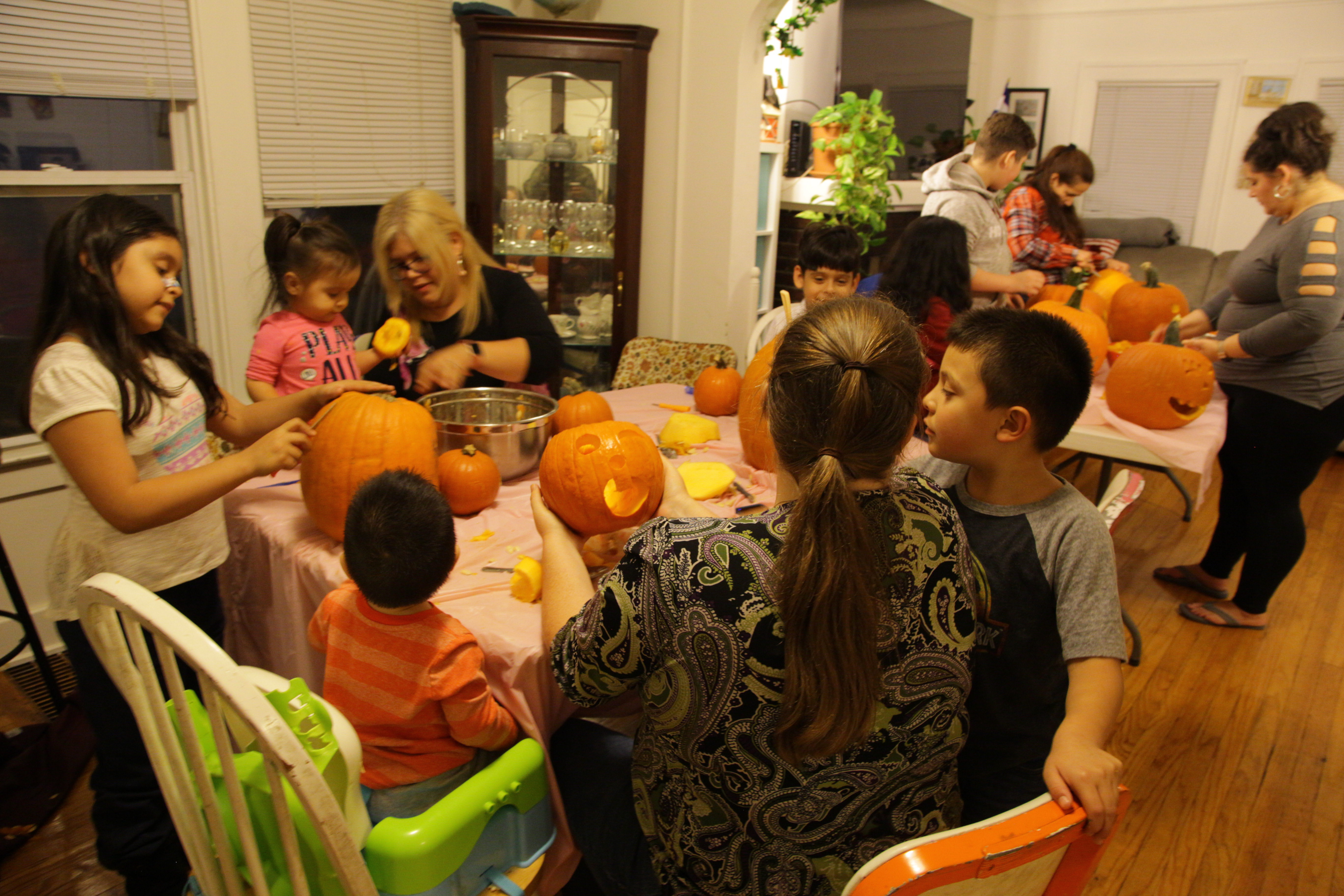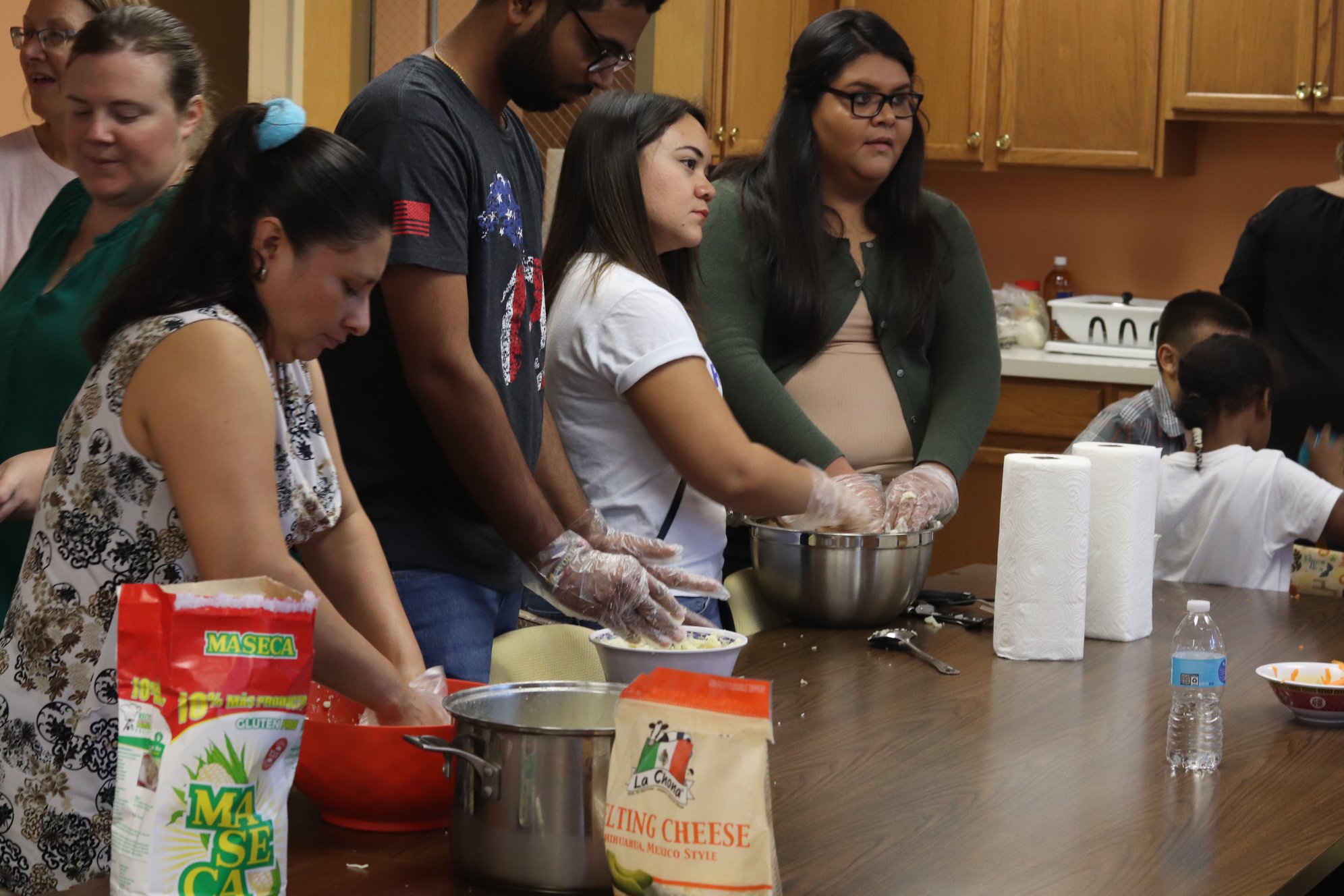Awesome Project: Detroit’s Unity in Our Community TimeBank
Published September 15, 2018
When you make a deposit in a TimeBank, you won’t have to worry about whether it’ll lose value over time. You won’t have to worry about bank robbers, or sky-high interest rates. That’s because the only things a TimeBank holds is time, and the tremendous promise of an alternative way of valuing work, community, and each other.
“Time banking is about thinking about our communities and our economy a little differently,” says Alice Bagley, Unity in Our Community (UOC) TimeBank’s coordinator. “Our money economy only tends to highly value certain kinds of work, and places very little value on things like checking in on our senior neighbors, or the wisdom that people with different experiences might have, or the important work of community building through things like game nights. But we also know that if those things all went away tomorrow then we would no longer have functioning communities.”
So UOC puts into practice a different way of valuing one another’s work. Based in the Southwest Detroit community, for the past nine years they’ve worked to create a network of neighbors, businesses, and community organizations that build relationships and exchange services on the basis of need and reciprocity, rather than profit. Money is never part of the equation–not a single penny is traded between their members. Instead, members offer their time doing things like gardening, giving Spanish lessons, repairing bikes, or providing another service. In exchange for each hour of service they get an hour in the TimeBank, time they can “withdraw” by receiving services from another member who in turn receives an hour in the TimeBank and so on.
This exchange of services lends itself well to building strong community bonds, something particularly important in the rapidly changing community. Like others around the country, the community is composed of people that have lived in the neighborhood for decades as well as new Americans–first and second-generation immigrants. Where tension might arise elsewhere, however, the TimeBank has fostered close bonds.
First and second-generation immigrants teach cooking classes to get hours and share family dishes and stories with the community, rooting them in the neighborhood’s fabric. As seniors age, UOC connects them with neighbors who are able to provide the care and check ins that are necessary to allow them to age in place comfortably and safely. Both forms of work–sharing with and caring for one another–often just isn’t valued in our money based economy. But at the TimeBank, they are deeply valued and are traded for other services that continue to build community. Seniors, many of whom live on fixed incomes, continue to be valued for things like expertise and knowledge honed over a lifetime of learning, not easily commodified things.
“In the last year we had a group from one of the Muslim organizations in our neighborhood take on the task of shoveling snow for seniors,” Alice recounts. “It’s a lot harder to feel mistrust when the people you’re suspicious of are clearing off your walkway, or are checking up on you to make sure you’re ok.”
 [A community pumpkin carving event held through the UOC TimeBank. Community building events, like these, often aren’t valued with money but have enormous impact on the cohesiveness of our communities.]
[A community pumpkin carving event held through the UOC TimeBank. Community building events, like these, often aren’t valued with money but have enormous impact on the cohesiveness of our communities.]
There are no winners or losers in this system; members access the services they need, and are able to put value back into the system whatever way they can. It’s a transformational way of thinking about community, about the value of our work, and about people.
Alice also says that she’s found that in their work, the neighborhood has turned the traditional mindset of “givers” and “takers” that confronts low-income communities on its head.
“I think particularly when you look at a community like ours where there’s a lot of poverty, it’s really easy to say that this community needs this, and this, and this,” says Alice. In doing so, you risk focusing only on a community’s deficits and reducing people to vessels that receive good works from the outside, rather than whole people who also have powerful strengths and things to offer to the community.
“We get a fair number of volunteers that come in from the suburbs to volunteer with Bridging Communities to support our seniors…and people come into the neighborhood thinking, ‘Oh, I’m coming to Detroit to do good work,’” Alice says. “They’re earning hours which they at first might not think they’ll use, but then they end up coming to a cooking class in the neighborhood, or taking Spanish lessons, and suddenly this place where they came to do good works with that outsider mindset is actually a place where they’re exchanging things. And that starts to break down that whole, ‘I’m a giver, and this person is a taker’ kind of mindset, and put us all on a more even playing field.”
 [A pupusa making class hosted by a member of Unity in Our Community TimeBank’s, in partnership with Bridging Communities, a non profit in Southwest Detroit.]
[A pupusa making class hosted by a member of Unity in Our Community TimeBank’s, in partnership with Bridging Communities, a non profit in Southwest Detroit.]
The simple idea of helping each other, and the only expectation being that in return you’ll receive help yourself, is a powerful one. But being on the leading edge, UOC has found that as it’s grown it’s difficult to find support from traditional sources of funding.
“Our funding has been sort of uneven; we’ve been going from short-term grant to short-term grant. The TimeBank, for most of its existence, has been a little- to no-budget organization, so it has worked for a while” Alice says. “Once we upped our game a bit with some staff to help coordinate partnerships and events, we had more of a need for resources. And time banking is a pretty new idea and doesn’t always check all the foundation boxes.”
So, having heard about ioby through partners who had raised money through the platform, they turned to crowdfunding. “We had a broad base of support, so it kind of made sense for us. We wanted to tap into our community to for help.” They’re in the middle of a fundraiser that they hope will give them a base to work from and ensure that they have more stability. “Having funding let’s us think, ‘Ok, it’s November right now but we can plan for something in April and know that we’ll have the resources to actually do it and not have to scramble in a few months.”
The TimeBank may be too small to have a wide-ranging impact on the global economy. But for their neighbors in Southwest Detroit, it’s been nothing short of transformational
Interested in supporting the Unity in Our Community TimeBank? If you live in Detroit could join the TimeBank and put in a few hours yourself, or if you’re too far away, pitch in whatever way is meaningful to their ioby campaign. Just like TimeBanking, every little bit helps.
Have an idea to strengthen your own community? We want to help! Let us know what your great idea is.
